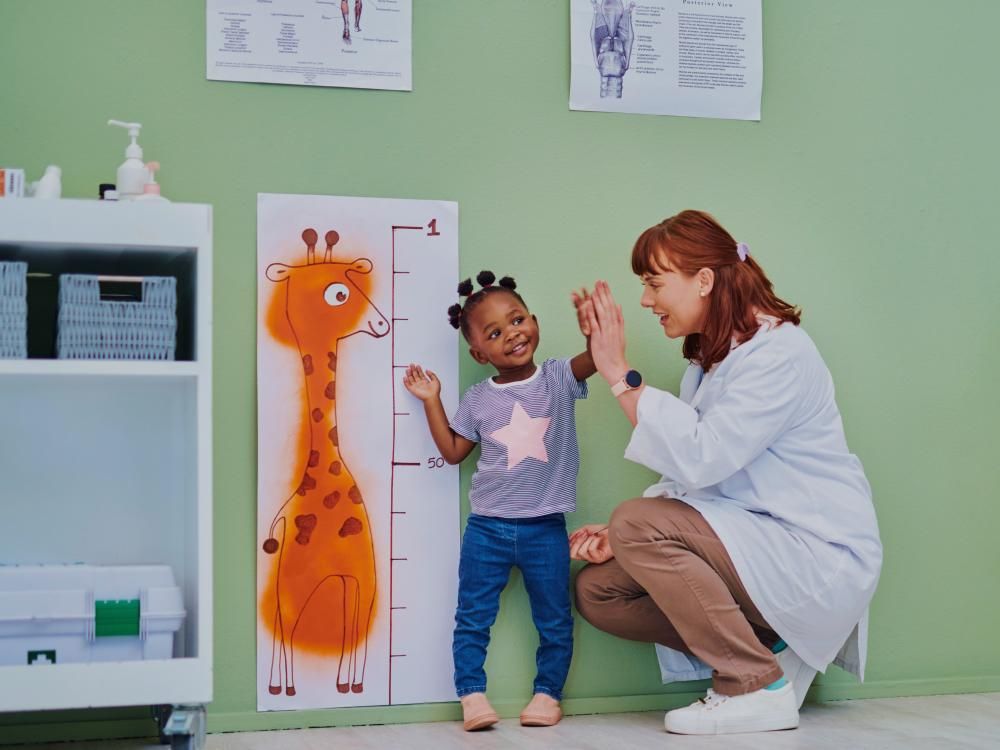
Key EHR features for healthcare organizations & specialized practices
February 27, 2024
Our experts can implement custom EHR/EMR solutions with feature sets tailored to the specifics of your medical practice or analyze your current solution’s capabilities and help expand them by integrating additional EHR modules.
General EHR features
The majority of EHR systems include similar basic features useful for most clinicians regardless of their medical practice specialties.

Document management
The primary function of electronic health record systems is to manage patient data. While EMR software often serves as a digital version of the paper chart, EHR doesn’t solely contain doctor’s notes but also provides customizable templates and e-forms for faster charting and more accurate record-keeping. EHRs allow clinicians to acquire, store, and share demographic details essential for public health improvement and other health-related information.
- Complete patient medical history
- Immunization tracker
- Medical images
- Determinants of health tracker
- Radiology and lab results
Patient management
The majority of EHRs have patient management features that automate administrative tasks like appointment scheduling, giving medical professionals more time to focus on clinical tasks and empowering patients to proactively manage their health.
- Appointment and referral scheduler
- Follow-up reminders
- Patient portals
Security
Depending on the country of operation, a medical organization’s EHR should align with the Meaningful Use criteria, GDPR and HIPAA regulations, and international healthcare software security guidelines for the protection of patients’ health information as well as data governance guidelines.
- Multi-factor authentication
- Data encryption
- Different levels of distributed access control
- Secure data transfer channels and protocols, and more
Analytics & reporting
Advanced EHR solutions offer medical data analytic capabilities that enable healthcare providers to make evidence-based diagnoses, personalize treatment plans, assess the organization’s productivity, and discover points for patient care improvement.
- Symptomatic pattern identification
- Treatment effectiveness assessment
- Health condition forecasting
- Department productivity evaluation
Clinical management
Some electronic health record software solutions have capabilities beyond patient record keeping and aid healthcare personnel in managing clinics’ and even pharmacies’ daily routines like task completion reporting, order entry, prescription verification and validation, and financial management.
- Comprehensive dashboards with clinical data
- Practice management module
- Task trackers and reminders
- Insurance information storage
Looking for a reliable EHR system to automate your clinical workflows?
Specialized EHR features
EHR systems for particular medical specialties typically have distinct capabilities and gather additional patient information.
Specialty documentation templates
Each healthcare provider has to make notes during a patient examination, diagnostics, treatment planning, and referrals. Filling out pre-made templates saves time and effort compared to writing notes from scratch and helps avoid typos or mistakes due to inattentiveness or oversight. Patients also request multiple forms from healthcare organizations: physical wellness assessment for schools, vaccination certificates, proof of special needs, etc. Generating such documentation automatically with data available in EHR is faster and easier than creating them anew every time.
- Patient examination procedure guidelines
- SOAP notes (The Subjective, Objective, Assessment, and Plan notes)
- Official documentation templates
- Brief Mental Status Examination (MSE) template
- ICD-10 (International Classification of Diseases), ICD-9, CPT (The Current Procedural Terminology) specialty codes suggestions
Specialized charting
For more informed clinical decision-making, medical professionals must fully understand the dynamics of changes in their patients’ conditions. To do that, clinicians generate charts based on the metrics stored in the EHR and compare them to the official norms and standards.
- Growth and developmental charting
- Newborn screening data
- Periodontal charting
- Glucose levels charting
Specialized treatment plans
Patients with chronic conditions, disabilities, developmental abnormalities, or history of mental illnesses or substance abuse require treatment protocols that vary significantly from average cases. EHRs can help healthcare professionals suggest more accurate and personalized treatment while documenting every step of the process for future analysis and faster medication adjustments.
- E-prescribing of controlled substances (EPCS)
- Special care needs management
- Drug interaction alerts
- Rare condition knowledge base
EHR modules powered by advanced tech
Innovative healthcare systems allow medical professionals to elevate the quality of care and its accessibility. EHR solutions enhanced with advanced technologies automate note-taking and patient management to minimize the amount of time and effort clinicians have to spend on administrative tasks.
Voice recognition
Automatic note-taking
Chatbots & voice assistants
Integration with medical devices
Specialized EHR systems & modules we’ve built
We have wide experience in delivering EHR systems or separate modules with special features that boost healthcare organizations’ workflows.

1,000
therapy orders created monthly
Oncology treatment platform
We created an EHR-connected platform that contains a vast collection of up-to-date medical research and aids medical professionals in diagnostics, quick treatment order creation, and generating reports on recommended therapies.

HIPAA, ONC, CEHRT, & Section 508
certified solution
Telemedicine-ready EHR system
We delivered a unique EHR system with capabilities that optimized the input of patient records and facilitated doctor-patient communication enabled by speech recognition, smartpen, clinical text analysis, NLP, and online medical conferencing tools.

3x
faster case creation
An RPM and mobile telehealth suite
Our team released a suite of a mobile app and a web-based admin portal for nurses in rural and underserved areas in the US to facilitate primary case creation for sexual assault victims. The solution improves the accuracy of the examination, streamlines data input into the EHR, and ensures the maximum comfort of patients.

24/7
service availability
Telehealth suite for psychiatric assessment
We delivered a HIPAA-compliant comprehensive telepsychiatry solution for remote medical case processing, patient data management, communication between different hospitals, remote patient assessment, treatment recommendations, and facility placement coordination.

1,000
therapy orders created monthly
Oncology treatment platform
We created an EHR-connected platform that contains a vast collection of up-to-date medical research and aids medical professionals in diagnostics, quick treatment order creation, and generating reports on recommended therapies.

HIPAA, ONC, CEHRT, & Section 508
certified solution
Telemedicine-ready EHR system
We delivered a unique EHR system with capabilities that optimized the input of patient records and facilitated doctor-patient communication enabled by speech recognition, smartpen, clinical text analysis, NLP, and online medical conferencing tools.

3x
faster case creation
An RPM and mobile telehealth suite
Our team released a suite of a mobile app and a web-based admin portal for nurses in rural and underserved areas in the US to facilitate primary case creation for sexual assault victims. The solution improves the accuracy of the examination, streamlines data input into the EHR, and ensures the maximum comfort of patients.

24/7
service availability
Telehealth suite for psychiatric assessment
We delivered a HIPAA-compliant comprehensive telepsychiatry solution for remote medical case processing, patient data management, communication between different hospitals, remote patient assessment, treatment recommendations, and facility placement coordination.

1,000
therapy orders created monthly
Oncology treatment platform
We created an EHR-connected platform that contains a vast collection of up-to-date medical research and aids medical professionals in diagnostics, quick treatment order creation, and generating reports on recommended therapies.

HIPAA, ONC, CEHRT, & Section 508
certified solution
Telemedicine-ready EHR system
We delivered a unique EHR system with capabilities that optimized the input of patient records and facilitated doctor-patient communication enabled by speech recognition, smartpen, clinical text analysis, NLP, and online medical conferencing tools.

3x
faster case creation
An RPM and mobile telehealth suite
Our team released a suite of a mobile app and a web-based admin portal for nurses in rural and underserved areas in the US to facilitate primary case creation for sexual assault victims. The solution improves the accuracy of the examination, streamlines data input into the EHR, and ensures the maximum comfort of patients.

24/7
service availability
Telehealth suite for psychiatric assessment
We delivered a HIPAA-compliant comprehensive telepsychiatry solution for remote medical case processing, patient data management, communication between different hospitals, remote patient assessment, treatment recommendations, and facility placement coordination.
Comparison of open-source, proprietary & custom EHR
Different EHR software have distinct sets of capabilities and requirements. Providers need to choose a system with the key features that cover their organization’s needs and fit within their connectivity, infrastructure, and budget requirements.
Features
Features
Only basic features by default Unique functionality must be added by developers
A wide range of pre-installed features The variety of add-ons depends on the particular vendor and the product itself
Feature set is tailored to a particular organization’s workflows
Interface
Interface
Very simplistic, often outdated interface
More complex interface
Custom interface
Source code modifications
Source code modifications
It’s possible to modify the source code
The solution’s source code cannot be altered
The source code can be changed by developers per the client’s request
Cost
Cost
Free or significantly cheaper than its counterparts
Upfront costs and regular license fees vary depending on the EHR’s provider and system capabilities
Upfront costs are usually higher than for its counterparts
Security
Security
The community is in charge of the EHR’s security
The vendor is in charge of the EHR’s security and backups
The IT partner or the organization itself is in charge of the system’s security and backups
Compliance
Compliance
Compliance varies for every system
Compliance with major regulatory standards, including HIPAA, and ONC
Compliance with major regulatory standards, including HIPAA and ONC
Need a customized EHR solution to boost your organization’s productivity?
How to choose an EHR solution
Choosing from many EHR solutions available on the market can be challenging, especially since many of them have pre-defined feature sets that look similar but cost differently. This is what you should take into account when deciding on the desired functionality for your EHR:
- The opinion of the medical professionals who are going to be primary users of the system
- Your healthcare organization’s workflows and the ways EHR can support them
- Your existing IT infrastructure technical capacity and limitations
- EHR capabilities your organization must have to receive Meaningful Use reimbursement
Our EHR implementation services
Our team helps healthcare providers choose, implement, and efficiently use an EHR system with the most fitting functionality.
Consulting
Our consultants can assess a particular healthcare organization’s needs, identify their main requirements, and outline business priorities to define the EHR solution's core functionality and determine the implementation project’s cost.
Implementation
We develop and install EMR and EHR software with custom features, as well as carry out implementation and customization of the selected out-of-the-box EHR systems. Our experts create a detailed project plan, implement all the necessary functionality, configure the system, and redesign current workflows if needed. We can also enhance healthcare providers’ systems of choice with advanced modules for better clinical decision support.
Integration & data migration
We facilitate interoperability among electronic health record systems and other health information technology tools to improve their effectiveness. We also migrate healthcare data to the EHR from paper records, legacy systems, or other healthcare software, from an on-premise to a cloud-based system, and from EHRs or EMRs made by other vendors.
Monitoring & support
We continuously monitor and evaluate the EHR system's performance, make adjustments to enhance its productivity, tune it to the current quality standards and Meaningful Use regulations, and solve any anticipated issues.
Support healthcare processes with the right EHR features
Feature-packing your EHR is not always the best option. Based on user feedback, too many features that don’t contribute to a medical organization’s everyday workflow negatively impact medical professionals’ wellbeing and can lead to burnout. Therefore, it is vital to choose a combination of capabilities that flawlessly fit into your personnel’s daily routines and alleviate their workloads instead of adding more tasks. If selecting an essential EHR feature set for your organization seems overwhelming, our experts are always ready to help. We will analyze your organization’s clinical and administrative processes, suggest the most fitting options, and carry out the implementation so you can focus on boosting your patients’ health and growing profits.

Insights
EHR integration: a complete overview & real-world examples
Explore EHR integration payoffs, roadmap, and real-life examples, as well as healthcare software to integrate with EHRs to improve care quality.

Insights
ERP implementation strategy: approaches, steps, and guidelines
Find out how to select the right ERP implementation strategy and set a suitable roadmap for successful software adoption.

Insights
Pediatric EHR: key features, benefits, and leading platforms
Discover key features and integrations of pediatric EHRs and how to choose and implement a suitable solution, overcoming possible challenges along the way.

Insights
Dental EHR: main features, integrations & best practices
A complete guide to successful dental EHR adoption: essential features of cloud and on-premise software, benefits, and ways to avoid potential pitfalls.

Insights
Psychiatry EHR: distinctive features, use cases, and adoption guidelines
Explore how psychiatry EMR and EHR software stands out from the rest of healthcare apps and learn tips on its successful implementation into your IT ecosystem.

Service
Nursing EHR: features, integrations & adoption guide
Discover how electronic health records can benefit nursing homes by facilitating patients’ documentation management and learn tips on its successful adoption.

Insights
Virtual hospital: key features, examples & benefits of remote care
Learn about virtual hospitals, their architecture, integrations, and types. Explore their benefits for doctors and patients and implementation challenges.
More about healthcare software services
Services
- Healthcare software development
- Healthcare mobile app development
- Patient portals
- Hospital management software
- Hospital inventory management software
- CRM
- Data analytics
- Remote patient monitoring
- Medical image analysis
- Pharmacy management software
- Medical device software development
- Patient engagement solutions
EHR
Telehealth